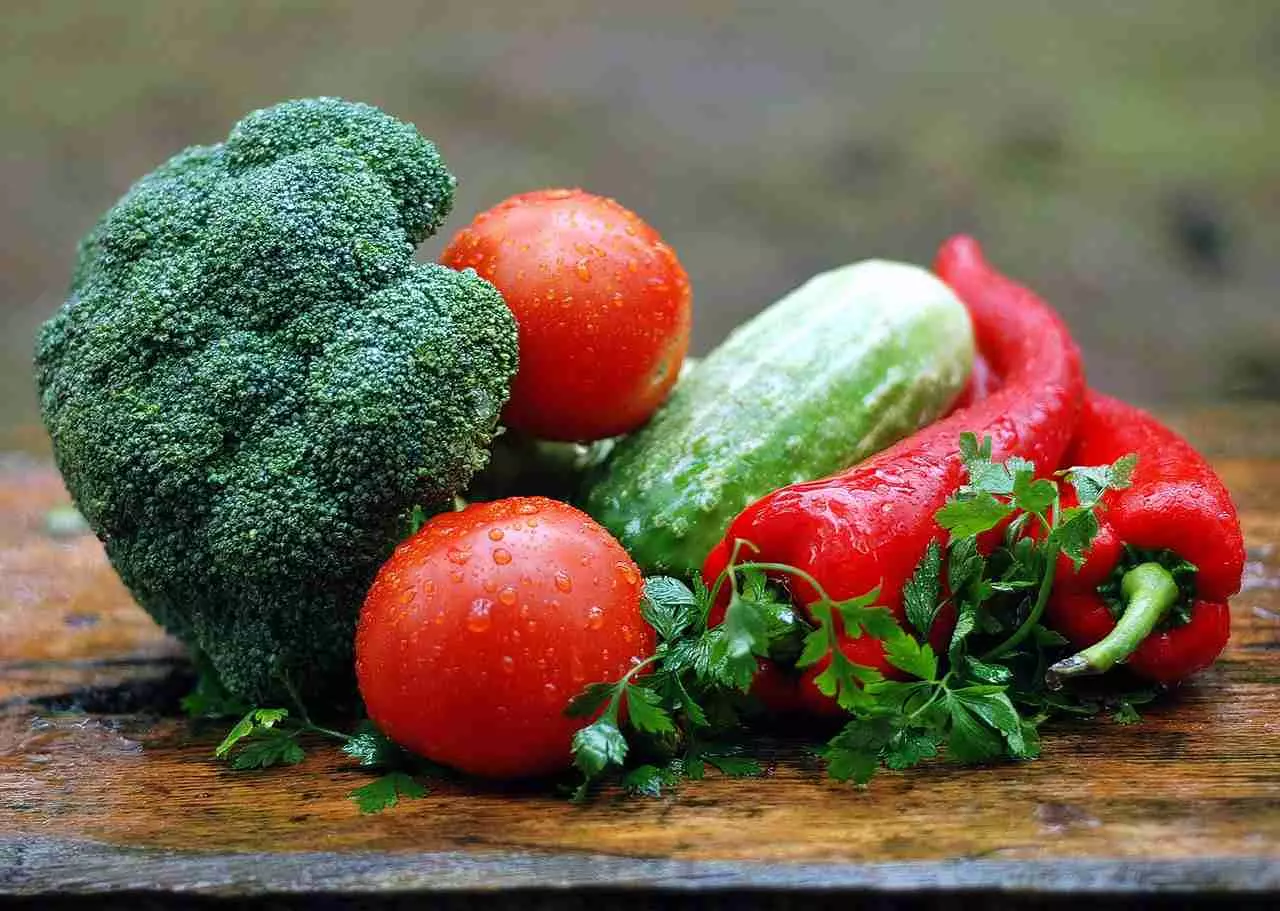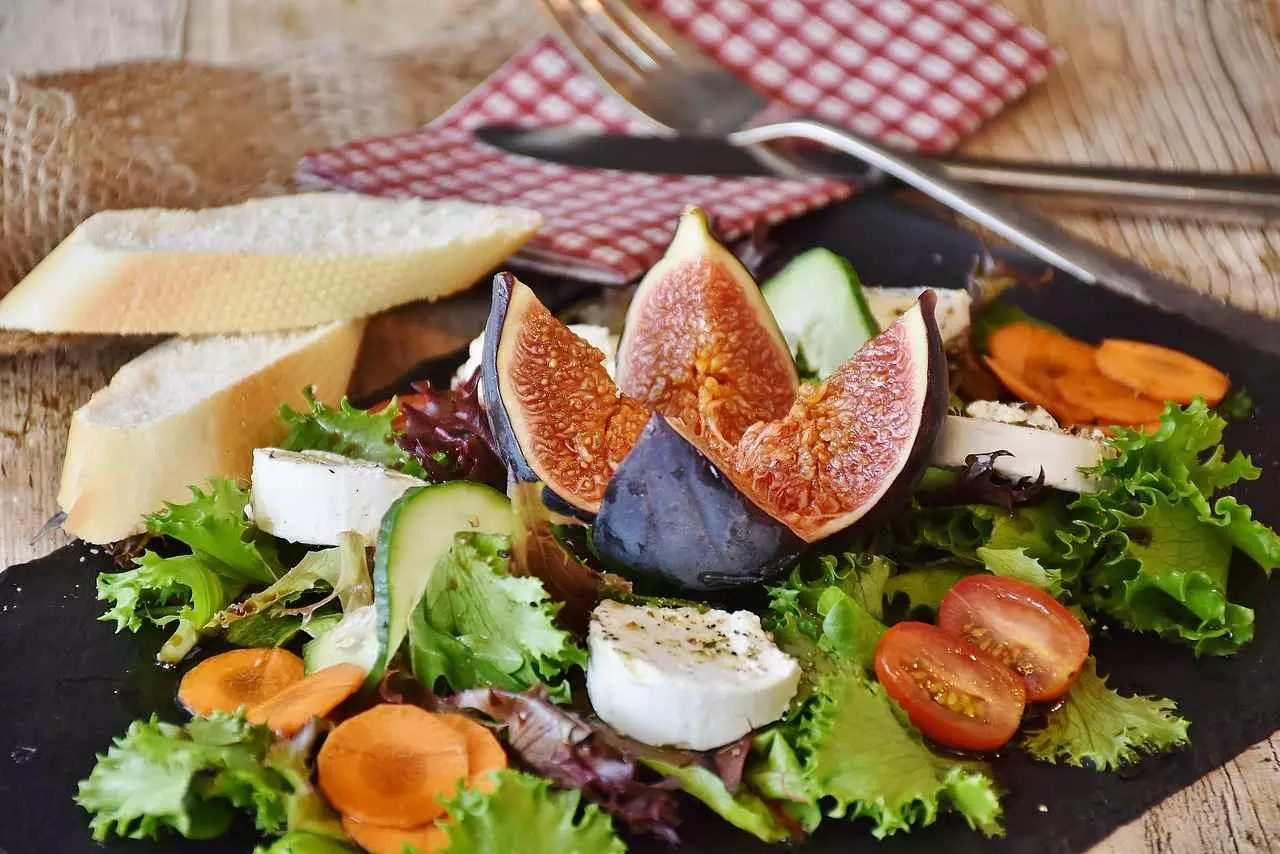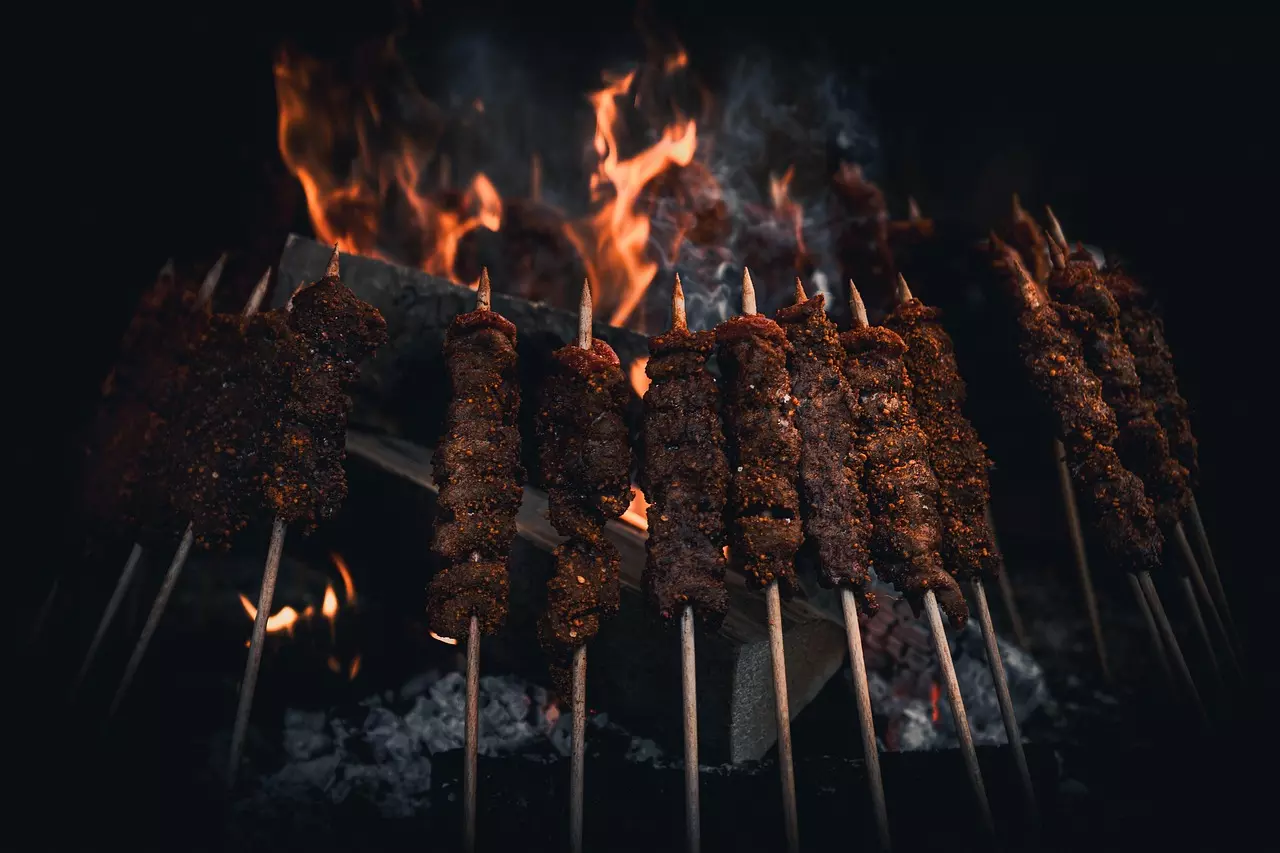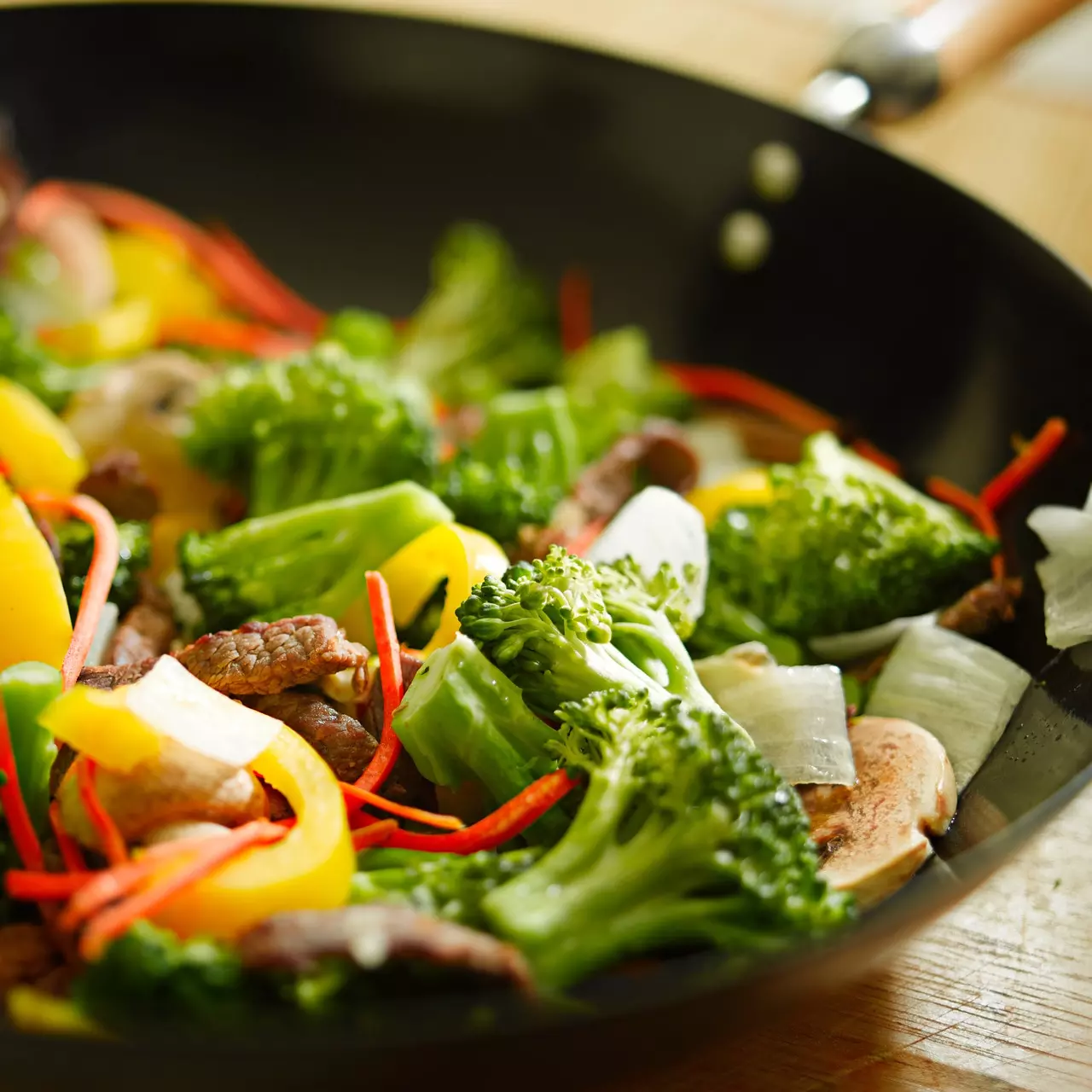
- Home
- India
- World
- Premium
- THE FEDERAL SPECIAL
- Analysis
- States
- Perspective
- Videos
- Sports
- Education
- Entertainment
- Elections
- Features
- Health
- Business
- Series
- In memoriam: Sheikh Mujibur Rahman
- Bishnoi's Men
- NEET TANGLE
- Economy Series
- Earth Day
- Kashmir’s Frozen Turbulence
- India@75
- The legend of Ramjanmabhoomi
- Liberalisation@30
- How to tame a dragon
- Celebrating biodiversity
- Farm Matters
- 50 days of solitude
- Bringing Migrants Home
- Budget 2020
- Jharkhand Votes
- The Federal Investigates
- The Federal Impact
- Vanishing Sand
- Gandhi @ 150
- Andhra Today
- Field report
- Operation Gulmarg
- Pandemic @1 Mn in India
- The Federal Year-End
- The Zero Year
- Science
- Brand studio
- Newsletter
- Elections 2024
- Events
The farm and the flame, how theatrics is spicing up modern dining

Not too long ago, dining out was much about filling the plate with familiar dishes and maybe snapping a quick photo for the Gram. But in 2025, like everything else, its flavour has changed. Today’s well-travelled, experience-hungry diners want more than just a good meal—they want a story on the plate, whether it is ingredients sourced straight from a nearby farm or food cooked over a...
Not too long ago, dining out was much about filling the plate with familiar dishes and maybe snapping a quick photo for the Gram. But in 2025, like everything else, its flavour has changed. Today’s well-travelled, experience-hungry diners want more than just a good meal—they want a story on the plate, whether it is ingredients sourced straight from a nearby farm or food cooked over a wood fire.
Also read | Low on alcohol, how wine is rising high on NE alcobev charts
Take Mumbai-based homemaker Sakshi Saluja, who calls herself an “inveterate diner”. Having sampled cuisines around the world, she says, “Dining out is about satisfying culinary wanderlust. It’s the hatke (different) stories we remember—and post on Instagram.” Take for instance, The Table, Mumbai’s iconic 20-foot-long Burma teak community dining table where “even a solo diner is never alone”. Agreeing with Saluja, Reshma Chattaram says, “Good food and drinks matter, of course—but a bit of theatrics adds to the magic.”

And that magic is what more and more restaurants are now trying to serve up, embracing ancient techniques and local produce to create meals that are as meaningful as they are memorable. From food cooked over open flames to ingredients sourced directly from local farms, peppered with calling cards on the side, the shift is clear. Diners are craving connections—whether it’s with their roots, the chef’s journey, or the story behind that heirloom tomato.
Also read | The fungi that helps cook delicious meals from food waste
As restaurateur-in-the-making Kunki Chowdhury puts it, “People want to know what’s on their plate and where it came from.” And this is a shift the industry is backing—India’s full-service restaurant market, currently valued at $37.93 billion, is projected to touch $64.72 billion by 2030 (Modor Intelligence), driven by demand for thoughtful, immersive dining experiences.
Farm to table
Once a lofty ideal for “been-there-done-that” diners in the West, the farm to table movement is, despite critics and challenges, growing steadily in India. With menus priced between ₹2,500 to ₹6,500 for a meal for two, these casual fine dining spots are starting to think like Michelin Green Star restaurants—zero-waste kitchens, farm-to-table philosophies, and sustainable sourcing. Think regenerative agriculture like in Hungary or responsible seafood practices like in France.

However, it is not just about going organic or buying local—it’s about reconnecting with the soil, the seasons, and the stories behind every ingredient. “It is the simple joy of knowing where your food comes from, about flavour with roots, meals with meaning,” gushes Chowdhury, whose family grows organic vegetables and paddy, on one of the char islands near Guwahati.
At OMO: Soul Food Community in Gurugram for instance, where the script is about serving fare that is “grounded” and the calling card is a deep-dive into the menu’s ingredients. In a city of cookie-cutter cafes and global food trends, OMO, led by Chef Vanshika Bhatia, flips traditional menu on its head by letting its kitchen be dictated by fresh seasonal ingredients sourced from local farms, making each dish a celebration of sustainability, flavour, and storytelling. And, as foodie, Sonakshi Kurbah, says “Turning to the last pages of the menu, I was surprised to find fascinating insights into the origins of the hero ingredients of each dish.”
Another such trailblazing space where, according to Saluja, dining is offered as “an experience of nourishment of body and conscience” is The Table in Mumbai. Known for its globally inspired, ingredient-driven menu, and awards from Travel + Leisure, La Liste, and more, it serves what it says is “mindful food that is luxurious, meaningful, and deliciously rooted”. Sourcing produce from its chemical-free Alibaug farm, the goal, according to Gauri Devidayal, Co-Founder and Director, The Food Matters Group, is to serve up “as much seasonal produce as possible—from spinach, beetroot, radish, carrots, mizune and other leafy greens to heirloom varieties of tomatoes, herbs and several different microgreens.”

Caara Café in Delhi, founded by Alice Helme and Ambika Seth inside the British Council, follows the green path as well—serving hearty and healthy British and European fare with a sustainable twist. Sourcing ingredients from its own farms in Delhi and Haryana, “it has a frequently changing menu which reflects the best of the season,” says Pabitra Sarmah, a retired PSU professional who loves to “experience flavours”.
Not far away in Jaipur, Café White Sage, “where sustainable meets artisanal” proves that eco-consciousness can be chic as well. From vegan leather placemats and Fair-Trade coffee to zero-proof cocktails made with house-crafted syrups, the café is designed around sustainability. “Ingredients are farm-fresh, waste is reduced through ingredient sharing, and every meal is a nod to mindful living,” it proclaims.
Then there is the “theatrics”, as Reshma Chattaram calls it—which in OMO is about celebrating the lesser-known. For their Naga Edition, the team spent 10 days in Nagaland’s Mon district diving deep into indigenous ingredients, cooking techniques, and regional traditions. The result? A rich menu of wild-foraged ingredients, heritage millets, and natural yeast that come together in dishes. At The Table in Mumbai, the signature edge is its organic farming workshops—where one can harvest their own produce before enjoying a fresh, farm-to-fork lunch.
Flaming hot
Taking the farm to table philosophy and slow dining a step further, Farmlore, founded on a 37-acre working farm (including dairy) set up by Kaushik Raju and Chef Johnson Ebenezer just outside Bengaluru, ensures that every dish is powered by solar energy and cooked over a wood-fired oven or pit stove. Named the American Express One to Watch in the 2025 Asia’s 50 Best Restaurants list, diners at Farmlore begin with a stroll through lush groves, guided by stories of regenerative agriculture, to a menu that is shaped weekly by the harvest—featuring maybe a charred octopus with West Godavari cocoa or beet chips paired with goat milk. (Its calling card is curated culinary experiences that ranges from a five-course tasting menu for ₹3,500++ per ticket to a ten-course one for ₹6,500++ per ticket.)

But fire isn’t just part of the process here—it’s taking centre stage elsewhere too. Rooted in ancient traditions and the domain of backyard barbecues and roadside dhabas, open-fire cooking, especially of the wood variety, is coming out of the woodwork. Long holding sway in the West, showing up in everything from Michelin-starred steakhouses in London to rustic kitchens in Texas, fine dining restaurants in the country are putting fire back at the heart of the culinary experience.
At Fireside: Flame Craft Dining in Bengaluru, chefs Rajat Alve, Vineeth Kumar, and Pramodh HN are reviving open-flame cooking as both art and theatre. Picture flame-seared meats, charred veggies, smoky paella, and a ginger beer bomb with a crackling finish. All of which are slow-cooked to a depth where “you pay attention and let every ember-stoked bite linger,” says IT professional, Smita Shetty.
However, this fiery revival is only reflective of a global culinary shift in which chefs from Kyoto to Texas are turning back to fire in search of authenticity. “We’re not reinventing the wheel,” Rajat Alve says. “We’re just remembering how it was built.”

Across the country, others are fanning similar flames. At Palaash in Maharashtra’s Tipeshwar Sanctuarys, the secret sauce is “jungle dining meets social impact”, where open-fire cooking is led by local women. In Hyderabad and Bengaluru, ASF BBQ is all about lava-stone grill flair; Mumbai’s Omny Kitchen about charcoal-fired dishes that balance rustic textures with global flair and Kochi’s Open Flame Kitchen Restaurant about proving that simple, ingredients-first flame cooking never goes out of style.
Finally, whether its heirloom greens harvested that morning or smoky flavours coaxed from fire, this new dining ethos reminds us that great food isn’t just cooked—it’s rooted, real, and remembered. These immersive dining experiences tap into something purposeful: a desire to eat with intention, to connect with the land and the flame, and the stories behind our meals.
